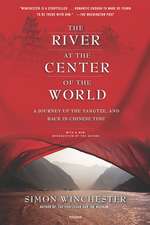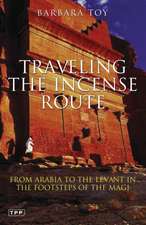For the Term of His Natural Life
Autor Marcus Clarkeen Limba Engleză Paperback
For the Term of His Natural Life
By Marcus Clarke
For the Term of His Natural Life, written by Marcus Clarke, was published in the Australian Journal between 1870 and 1872 (as "His Natural Life"), appearing as a novel in 1874. It is the best known novelisation of life as a convict in early Australian history. Described as a "ripping yarn," and at times relying on seemingly implausible coincidences, the story follows the fortunes of Rufus Dawes, a young man transported for a murder that he did not commit. The book clearly conveys the harsh and inhumane treatment meted out to the convicts, some of whom were transported for relatively minor crimes, and graphically describes the conditions the convicts experienced. The novel was based on research by the author as well as a visit to the penal settlement of Port Arthur, Tasmania.
I have endeavoured in "His Natural Life" to set forth the working and the results of an English system of transportation carefully considered and carried out under official supervision; and to illustrate in the manner best calculated, as I think, to attract general attention, the inexpediency of again allowing offenders against the law to be herded together in places remote from the wholesome influence of public opinion, and to be submitted to a discipline which must necessarily depend for its just administration upon the personal character and temper of their gaolers.
Your critical faculty will doubtless find, in the construction and artistic working of this book, many faults. I do not think, however, that you will discover any exaggerations. Some of the events narrated are doubtless tragic and terrible; but I hold it needful to my purpose to record them, for they are events which have actually occurred, and which, if the blunders which produced them be repeated, must infallibly occur again. It is true that the British Government have ceased to deport the criminals of England, but the method of punishment, of which that deportation was a part, is still in existence. Port Blair is a Port Arthur filled with Indian-men instead of Englishmen; and, within the last year, France has established, at New Caledonia, a penal settlement which will, in the natural course of things, repeat in its annals the history of Macquarie Harbour and of Norfolk Island.
With this brief preface I beg you to accept this work. I would that its merits were equal either to your kindness or to my regard.
| Toate formatele și edițiile | Preț | Express |
|---|---|---|
| Paperback (9) | 99.49 lei 3-5 săpt. | |
| CreateSpace Independent Publishing Platform – | 99.49 lei 3-5 săpt. | |
| – | 117.55 lei 3-5 săpt. | |
| – | 117.96 lei 3-5 săpt. | |
| Mint Editions – 28 sep 2021 | 123.30 lei 3-5 săpt. | |
| CREATESPACE – | 189.82 lei 3-5 săpt. | |
| Alpha Editions – 17 mar 2018 | 221.35 lei 3-5 săpt. | |
| CREATESPACE – | 226.64 lei 3-5 săpt. | |
| Echo Library – 31 aug 2007 | 182.60 lei 38-44 zile | |
| BROUWER PR – 13 mai 2009 | 217.32 lei 6-8 săpt. | |
| Hardback (1) | 189.35 lei 3-5 săpt. | |
| Mint Editions – 28 sep 2021 | 189.35 lei 3-5 săpt. |
Preț: 99.49 lei
Nou
19.04€ • 20.69$ • 16.01£
Carte disponibilă
Livrare economică 31 martie-14 aprilie
Specificații
ISBN-10: 1523672102
Pagini: 270
Dimensiuni: 216 x 279 x 14 mm
Greutate: 0.63 kg
Editura: CreateSpace Independent Publishing Platform





